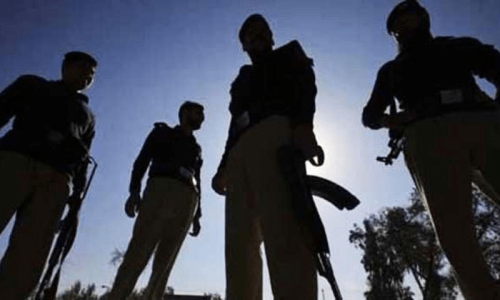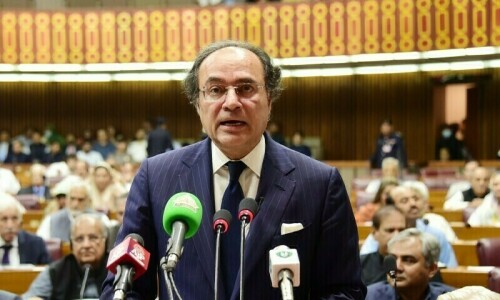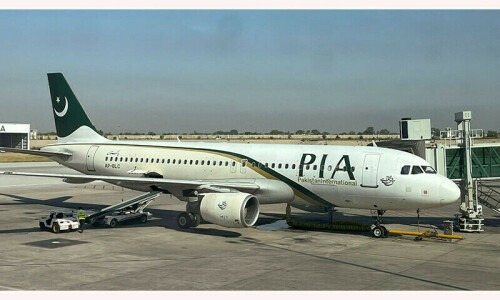LONDON, Feb 3: Former prime minister, the late Benazir Bhutto, in her still-to-be published book (Reconciliation: Islam, Democracy & the West) has asserted that Pakistan had become the epicentre for two epic battles — one, the intra-Islamic debate about the political and social values of democracy and modernity and the other, the looming potential for a catastrophic showdown between Islam and the West.
She says that the burning twin towers had become a dual metaphor for these two battles and lamented that for both of these epic battles, “My homeland of Pakistan has become the epicentre — the ground zero, if you will — of either reconciliation or disaster”.
In the book some extracts of which were carried by The Sunday Times (Exclusive: Benazir Bhutto’s last testament) Ms Bhutto gives a hint about the hands that wrote the plot to kill her.
“When I returned, I did not know whether I would live or die. I knew that the same elements of Pakistani society that had colluded to destroy my father, Zulfikar Ali Bhutto, and end democracy in Pakistan in 1977 were now arrayed against me for the same purpose exactly 30 years later.
“Indeed, many of the same people who had collaborated with an earlier military junta in the judicial murder of my father were now entrenched in power in the Musharraf regime and the intelligence apparatus. There could have been no more dramatic statement to me than General Musharraf’s recent appointment as attorney-general of the son of the man who had sent my father to the gallows.
“I had actually received from a sympathetic Muslim foreign government the names and cell phone numbers of designated assassins.
“I was told by both the Musharraf regime and the foreign Muslim government that four suicide bomber squads would attempt to kill me. These included, the reports said, squads sent by the Taliban warlord Baitullah Mehsud; Hamza Bin Laden, a son of Osama Bin Laden; Red Mosque militants; and a Karachi-based militant group.
“Musharraf’s regime knew of the specific threats against me, including the names and numbers of those who planned to kill me, and the names of others -- including those in his own inner circle and in his party -- whom we believed were conspiring. Despite our request, we received no reports on what actions were taken before my arrival as a follow-up to these warnings.
“I wrote a letter to Musharraf. I told him that if I was assassinated by the militants it would be due to their sympathisers in his regime, whom I suspected wanted to eliminate me and remove the threat I posed to their grip on power.”
She then recounts in detail the first attempt on her on October 18, the day she returned to Pakistan, and repeats her suspicion that a man carrying a small baby could have been the first suicide bomber.
“Later I was informed of a meeting that had taken place in Lahore where the bomb blasts were planned. According to this report, three men belonging to a rival political faction were hired for half a million dollars. They were, according to my sources, named Ejaz, Sajjad and another whose name I forget.
“One of them died accidentally because he couldn’t get away fast enough before the detonation. Presumably this was the one holding the baby. However, a bomb maker was needed for the bombs.
“Enter Qari Saifullah Akhtar, a wanted terrorist who had tried to overthrow my second government. He had been extradited by the United Arab Emirates and was languishing in Karachi central jail. According to my second source, the officials in Lahore had turned to Akhtar for help. His liaison with elements in the government, according to this source, was a radical who was asked to make the bombs and he himself asked for a fatwa making it legitimate to oblige. He got one.”
She also recounts the growth of militancy in Pakistan and says: “Militancy started with the Zia military dictatorship in the 1970s. Its heirs destabilised democracy until military dictatorship was once again imposed. The Musharraf dictatorship, notwithstanding its public pronouncements, has presided over the mushrooming growth of militant groups and militant acts that have exacted a heavy human toll.”
She then talks about the essentials needed for sustaining the democratic process in her country and makes a case for expanding the middle classes which she says cannot achieve a critical mass until and unless education is given preference over all other public expenditure and national priorities.
“How can a nation build a middle class? The first key is to build an education system that delivers hope and real opportunity. Good public educational opportunity is the key to the economic and political progress of nations, and it can be so in the Islamic world as well. But in Pakistan $4.5 billion is spent on the military each year — an astounding 1,400% more than on education.”















































Dear visitor, the comments section is undergoing an overhaul and will return soon.